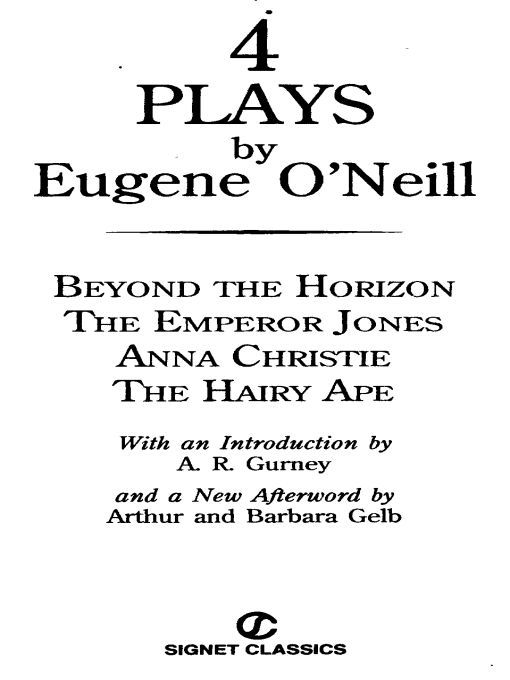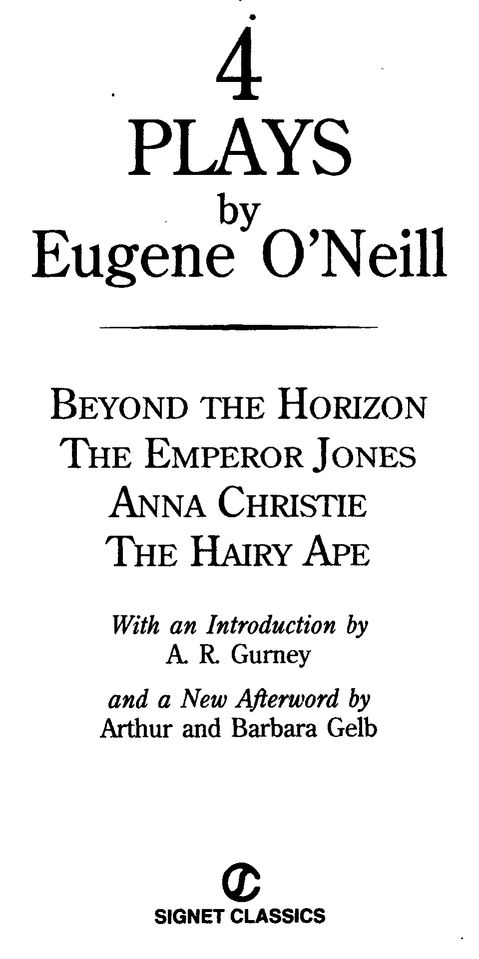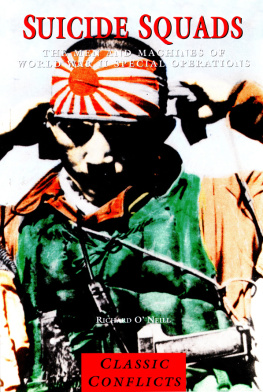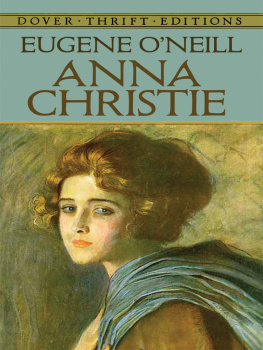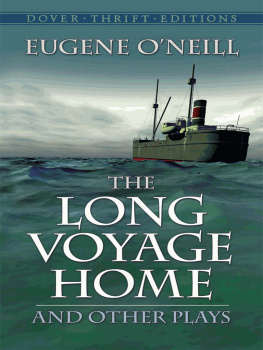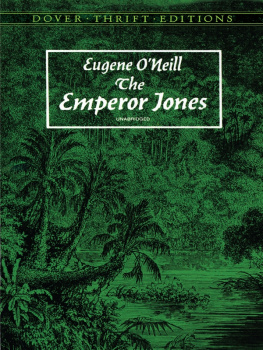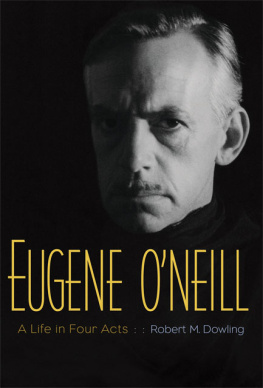Table of Contents
Eugene ONeill (1888-1953) was born in New York City. His first big success was Beyond the Horizon (1920), which won the Pulitzer Prize. Other plays from his early period include The Emperor Jones (1920), the Pulitzer Prize-winning Anna Christie (1921), and Desire Under the Elms (1924). His third Pulitzer Prize-winning play, Strange Interlude (1928), was followed by the trilogy Mourning Becomes Electra (1932), and the uncharacteristically comic Ah, Wilderness! (1933). A hiatus from the theater followed, during which ONeill was awarded the Nobel Prize in 1936, the only American playwright to be so honored. He ended his twelve-year absence from Broadway with The Iceman Cometh in 1946. His masterpiece, Long Days Journey Into Night, was written in 1941, but published and produced posthumously in 1956, when it won ONeills fourth Pulitzer Prize.
A. R. Gurney, winner of the 1987 Award of Merit from the American Academy and Institute of Arts and Letters, is the author of numerous plays, including The Dining Room, The Cocktail Hour, Love Letters, and Later Life. He taught literature at MIT for twenty-five years and in 2006 was elected a member of the American Academy of Arts and Letters.
Arthur Gelb and Barbara Gelb are authors of the 1962 seminal bestselling biography ONeill. The first volume of their revised ONeill biography was published in 2000, and they are at work on the final volume. Mr. Gelb is former managing editor of The New York Times and has had a long career as an author outside the paper, most recently with his memoir, City Room. Ms. Gelb is the author of My Gene, a play based on ONeills widow starring Collen Dewhurst. She is the author of, among other books, So Short a Time, a biography of John Reed and Louise Bryant, early colleagues of ONeill. In 2006 the Gelbs collaborated with Ric Burns in writing the PBS documentary ONeill.
INTRODUCTION
by A. R. Gurney
These early plays not only stand as valuable windows into the main body of work of Americas foremost playwright, but are also formidable pieces of theater in themselves. The two longer plays, Beyond the Horizon and Anna Christie, are written in the realistic style to which ONeill returned many times during the course of his prolific career. The Emperor Jones and The Hairy Ape are both bold examples of his recurrent attempts to experiment with style and structure, and stretch the traditional boundaries of theater.
Since, so much of ONeills work is illuminated by his life, it might help to remind ourselves of a number of salient benchmarks in his biography. Born in New York in 1888, he was the second son of a popular Irish-American matinee idol, James ONeill, who spent most of his artistic life touring the country in melodramas, particularly a dramatization of the Alexander Dumas novel The Count of Monte Cristo. The playwrights mother was a reclusive innocent who was addicted to narcotics during most of his youth. Both parents were lapsed Catholics. ONeill spent his early years rebelling against the conventional life his parents yearned to attain. He was suspended from Princeton, toured the bars of New York with his dissolute older brother, married and fathered a child, shipped off on a tramp steamer to South Africa and South America, divorced, and in 1912 returned to live with his family in New London, Connecticut, only to discover he had contracted tuberculosis. During his convalescence at a nearby sanitorium, he immersed himself in contemporary European drama and began to write short plays of his own.
In 1914 ONeill enrolled in George Pierce Bakers celebrated course on playwriting at Harvard, and in the summer of 1916 he moved to Provincetown, on Cape Cod, where he associated with a number of other young artists who put on plays in a small theater, built on a wharf. Their work was successful enough for the group, calling themselves the Playwrights Theatre, to stage a season of one-acts in New York. By now, encouraged by his father and by the reactions of audiences and critics, ONeill was beginning to trust himself as a serious playwright.
The plays in this volume belong to his fledgling period. Beyond the Horizon, his first significant full-length work, opened in New York in 1920. The producer hedged his bets by presenting the play only for matinees so that the actors could perform more established plays at night. ONeills play was received well enough to settle into a conventional run, winning the Pulitzer Prize at the end of the season. The Emperor Jones opened the following fall, and Anna Christie and The Hairy Ape soon after. Anna Christie won another Pulitzer in 1922.
Within a short span of years Eugene ONeill had become an important figure in the American theater, and he continued to write play after play that challenged audiences and critics in both form and content, and caused the works of his contemporaries to seem increasingly trivial and old-fashioned. He experimented constantly, working with masks, choruses, asides, and myths, delving into Expressionism and Surrealism, exploring Freudian, Jungian, and Nietszchean themes, and always, even in his failures, telling stories on stage in fresh and challenging ways. Several of his plays (particularly Strange Interlude and Mourning Becomes Electra) took longer to perform than most audiences had been used to, but Americans saw him as their first significant voice in the theater and bestowed on him the attention he deserved. He was equally celebrated abroad, and won the Nobel Prize for Literature in 1936 for what was by then an extraordinary body of work.
ONeills private life was marred by three turbulent marriages, along with disastrous relationships with his three children. Constantly changing domiciles, never finding a place he could truly call home, falling out of favor in the late thirties and forties, he nonetheless continued to write large and compelling plays. Some he refused to release, some were inadequately produced, and some he ruthlessly destroyed toward the end of his life. Racked by bad health, he died in Boston in 1953, under the impression that the world was no longer much interested in his work.
It was only after his death that ONeills reputation came into its full flowering. A revival of The Iceman Cometh in Greenwich Village in 1956, which also spearheaded the new Off-Broadway movement, was followed by major productions of Long Days Journey into Night, A Touch of the Poet, and A Moon for the Misbegotten. Only the last play had been previously produced, and all four were immediately celebrated as profoundly moving works. Many of ONeills earlier plays were soon revived both on Broadway and off, and today there is little argument that he deserves his crown as Americas most inventive and distinguished playwright. His masterpiece, Long Days Journey into Night, which is an autobiographical account of a day with his family in New London when he is found to have tuberculosis, can be considered one of the great domestic dramas of all time.
In any case, the playwrights complicated life informs much of his work. His fathers career in nineteenth-century melodramas is reflected in the sons highly charged dramaturgy. His suspicion and mistrust of most women comes out of his tempestuous relationships with his three wives, and the erratic behavior of his addicted mother. The yearning for a sense of the absolute echoes the lapsed Catholicism which must have pervaded his early home life. And of course, the recurrent image of the sea as an arena for escape, adventure, and loneliness comes out of the restless excursions of his youth.

